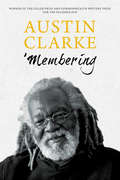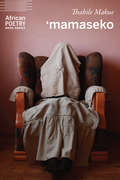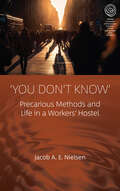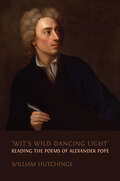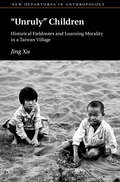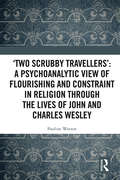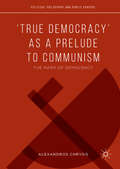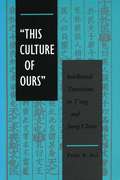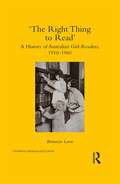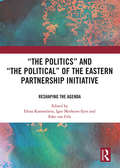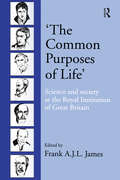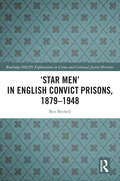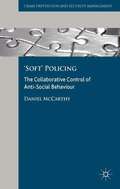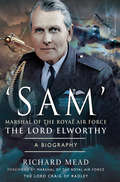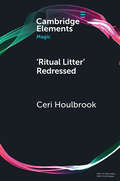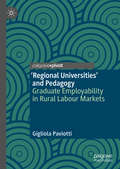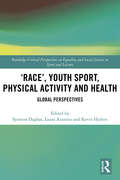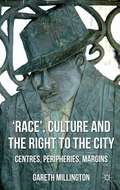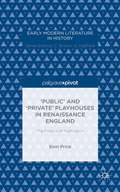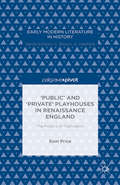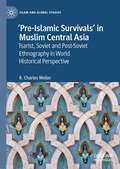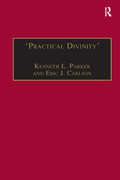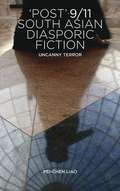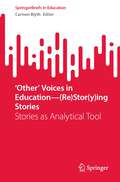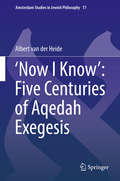- Table View
- List View
’Membering
by Austin Clarke2016 OCM Bocas Prize for Caribbean Literature — Longlisted 2016 RBC Taylor Prize — Longlisted The unforgettable memoir of Giller Prize–winning author and poet Austin Clarke, called “Canada’s first multicultural writer.” Austin Clarke is a distinguished and celebrated novelist and short-story writer. His works often centre around the immigrant experience, of which he writes with humour and compassion, happiness and sorrow. In ’Membering, Clarke shares his own experiences growing up in Barbados and moving to Toronto to attend university in 1955 before becoming a journalist. With vivid realism he describes Harlem of the ’60s, meeting and interviewing Malcolm X and writers Chinua Achebe and LeRoi Jones. Clarke went on to become a pioneering instructor of Afro-American Literature at Yale University and inspired a new generation of Afro-American writers. Clarke has been called Canada’s first multicultural writer. Here he eschews a traditional chronological order of events and takes the reader on a lyrical tour of his extraordinary life, interspersed with thought-provoking meditations on politics and race. Telling things as he ’members them.
‘mamaseko (African Poetry Book)
by Thabile MakueNamed after the poet&’s mother, &‘mamaseko is a collection of introspective lyrics and other poems dealing with the intersections of blood relationships and related identities. Thabile Makue questions what it means to be beings of blood—to relate by blood, to live by blood. In her poems Makue looks for traces of shared trauma and pain and asserts that wounds of the blood are healed by the same.
‘You Don’t Know’: Precarious Methods and Life in a Workers' Hostel (EASA Series)
by Jacob A. E. NielsenPeople employed at sites of precarious work such as call centres or retail warehouses often live precarious lives. Drawing on ethnographic research in a London hostel for precarious workers, the book explores the political, analytical and practical limitations of using traditional methods of trying to make sense of life in these settings. Traditional methods are rooted in practices that emerge from privileged social positions and their enactment is deeply entangled with the processes that create these conditions in the first place. This book responds to this by experimenting with ‘precarious methods’ to enable greater agency to those placed in these precarious situations.
‘Wit’s Wild Dancing Light’
by William HutchingsWit's Wild Dancing Light acts as a highly useful entry point for readers who are encountering Pope for the first time and also contains much illuminating material for those who are already familiar with his poetry. Dr Ian Calvert, University of Bristol The book is a chronological reading of Alexander Pope’s poems, from the Pastorals (1709) to the four-book Dunciad (1743). Each of the 26 chapters forming the volume selects examples for detailed scrutiny, demonstrating how close reading can generate understanding of a whole poem and how critical appraisal can build into a creative survey of an entire poetic career. The book’s approach is intended to be both scholarly and accessible and Wild Wit's Dancing Light will be of interest to scholars, students and anybody interested in Pope’s masterful poetry. William Hutchings was formerly Senior Lecturer in English Literature and Director of the Centre for Excellence in Enquiry-Based Learning at the University of Manchester, UK and he is presently Honorary Research Fellow in the School of Arts, Languages and Cultures at that university. He now lectures regularly to public groups locally and nationally. He has a wealth of teaching experience on English Literature courses at undergraduate and postgraduate level, and is the editor of Andrew Marvell: Selected Poems, the author of The Poetry of William Cowper, and Literary Criticism: A Practical Guide for Students.
‘Unruly’ Children: Historical Fieldnotes and Learning Morality in a Taiwan Village (New Departures in Anthropology)
by Jing XuHow do we become moral persons? What about children's active learning in contrast to parenting? What can children teach us about knowledge-making more broadly? Answer these questions by delving into the groundbreaking ethnographic fieldwork conducted by anthropologists Arthur and Margery Wolf in a martial law era Taiwanese village (1958-60), marking the first-ever study of ethnic Han children. Jing Xu skillfully reinterprets the Wolfs' extensive fieldnotes, employing a unique blend of humanistic interpretation, natural language processing, and machine-learning techniques. Through a lens of social cognition, this book unravels the complexities of children's moral growth, exposing instances of disobedience, negotiation, and peer dynamics. Writing through and about fieldnotes, the author connects the two themes, learning morality and making ethnography, in light of social cognition, and invites all of us to take children seriously. This book is ideal for graduate and undergraduate students of anthropology and educational studies.
‘Two Scrubby Travellers’: A psychoanalytic view of flourishing and constraint in religion through the lives of John and Charles Wesley
by Pauline WatsonThe ways in which people change and grow, and learn to become good, are not only about conscious decisions to behave well, but about internal change which allows a loving and compassionate response to others. Such change can take place in psychotherapy; this book explores whether similar processes can occur in a religious context. Using the work of Julia Kristeva and other post-Kleinian psychoanalysts, change and resistance to change are examined in the lives of John Wesley, the founder of Methodism, and his brother Charles, the greatest English hymn-writer. Their mother’s description of them as young men as ‘two scrubby travellers’, was a prescient expression indicating their future pilgrimage, which they negotiated through many struggles and compromises; it points towards the ‘wounded healer’, a description which could be applied to John in later years. The use of psychoanalytic thought in this study allows the exploration of unconscious as well as conscious processes at work and interesting differences emerge, which shed light on the elements in religion that promote or inhibit change, and the influence of personality factors. ‘Two scrubby travellers’: A psychoanalytic view of flourishing and constraint in religion through the lives of John and Charles Wesley enriches our understanding of these two important historical figures. It questions the categorising of forms of religion as conducive to change and so ‘mature’, and other forms as ‘immature’, at a time when many, particularly young people, are attracted by fundamentalist, evangelical forms of belief. This book will be essential reading for researchers working at the intersection of psychoanalysis and religious studies; it will also be of interest to psychotherapists and psychoanalysts more generally, and to researchers in the philosophy of religion.
‘True Democracy’ as a Prelude to Communism
by Alexandros ChrysisThis book constitutes a critical intervention in the theoretical discussion over the political relationship between democracy and communism. Shedding light on the philosophical origins of the democracy debate, it draws a clear demarcation line between liberalism and republicanism, arguing that after rejecting the former and supporting the latter, the young Marx endorsed 'true democracy' as a prelude to his forthcoming theory of communism. To this end, while following the dynamics of the Marxian history of political ideas and pre-communist theory of the state, the book takes into account the thought of a vast range of philosophers and political theorists, starting from the Ancient times (Aristotle), passing through the Age of Enlightenment (Spinoza, Rousseau), the German Idealist tradition (Hegel) the Young Hegelians’ Republicanism (Bauer, Ruge, Feuerbach), and reaching our own times (Arendt, Colletti, MacPherson, Castoriadis, Poulantzas). It will be of interest to students and scholars interested in the history of political thought, theories of democracy, and Marxism.
‘This Culture of Ours’: Intellectual Transitions in T’ang and Sung China
by Peter BolThis book traces the shared culture of the Chinese elite from the seventh to the twelfth centuries. The early T'ang definition of 'This Culture of Ours' combined literary and scholarly traditions from the previous five centuries. The late Sung Neo-Confucian movement challenged that definition. The author argues that the Tang-Sung transition is best understood as a transition from a literary view of culture - in which literary accomplishment and mastery of traditional forms were regarded as essential - to the ethical orientation of Neo-Confucianism, in which the cultivation of one's innate moral ability was regarded as the goal of learning. The author shows that this transformation paralleled the collapse of the T'ang order and the restoration of a centralized empire under the Sung, underscoring the connection between elite formation and political institutions.
‘The Right Thing to Read’: A History of Australian Girl-Readers, 1910-1960
by Bronwyn Lowe‘The Right Thing to Read’: A History of Australian Girl-Readers, 1910-1960 explores the reading habits, identity, and construction of femininity of Australian girls aged between ten and fourteen from 1910 to 1960. It investigates changing notions of Australian girlhood across the period, and explores the ways that parents, teachers, educators, journalists and politicians attempted to mitigate concerns about girls’ development through the promotion of ‘healthy’ literature. The book also addresses the influence of British publishers to Australian girl-readers and the growing importance of Australian publishers throughout the period. It considers the rise of Australian literary nationalism in the global context, and the increasing prominence of Australian literature in the period after the Second World War. It also shows how access to reading material improved for girls over the first half of the last century.
‘The Politics’ and ‘The Political’ of the Eastern Partnership Initiative: Reshaping the Agenda
by Elena Korosteleva Merheim-Eyre Eske Van GilsThe Special Issue consolidates new approaches to the study of the EU’s role in the eastern neighbourhood and beyond, informed by post-structuralist traditions in international relations. More specifically, by revisiting the European Neighbourhood Policy’s agenda from the conceptual perspective of ‘the political’ and redefining the notions of ‘othering’, ‘differentiation’ and ‘normalisation’, this volume renders a new and much-needed theoretical and empirical outlook onto the policy developments and their practices. By unpacking and connecting security, regional, institutional, normative and sector-thematic policy dimensions, the book seeks to re-politicise the agenda and re-focus policy revision on understanding the fundamentals of power relations when applied to the EU external relations. In light of the compounding crises, external and internal, one can no longer afford to simply tinker around the edges of the policy content and instruments. A more radical theoretical undertaking is overdue, to re-shape, re-define and re-centre the EU relations with the eastern region especially, put in the context of the new EU’s Global Security Strategy, and the new aspirations for the 2017 European Neighbourhood summit. The chapters originally published as a special issue in East European Politics.
‘The Common Purposes of Life’: Science and Society at the Royal Institution of Great Britain
by Frank A. J.L. JamesFor more than two hundred years the Royal Institution has been at the centre of scientific research and has also provided a cultural location for science in Britain. Within its walls some of the major scientific figures of the last two centuries - such as Humphry Davy, Michael Faraday, John Tyndall, James Dewar, Lord Rayleigh, William Henry Bragg, Henry Dale, Eric Rideal, William Lawrence Bragg and George Porter - carried out much of their research. Their discoveries include sodium, the miners' lamp, the electric dynamo, transformer and generator, the 'thermos' flask, x-ray crystallography and much else besides, all of which brought about major changes in the way we live. The success of the Royal Institution in research and in locating science within general culture led it being used as a model for other institutions, most notably by the founders of the Smithsonian Institution in Washington. Much has been written about the scientific work in the Royal Institution, but comparatively little attention has been devoted to the cultural settings which allowed the Royal Institution to become such a major site for the creation of scientific knowledge. This book seeks to rectify this gap by examining various aspects of its history through both thematic and chronological chapters.
‘Star Men’ in English Convict Prisons, 1879-1948 (Routledge SOLON Explorations in Crime and Criminal Justice Histories)
by Ben BethellThis book tells the story of the star class, a segregated division for first offenders in English convict prisons; known informally as ‘star men’, convicts assigned to the division were identified by a red star sewn to their uniforms. ‘Star Men’ in English Convict Prisons, 1879–1948 investigates the origins of the star class in the years leading up to its establishment in 1879, and charts its subsequent development during the late-Victorian, Edwardian, and interwar decades. To what extent did the star class serve to shield ‘gentleman convicts’ from their social inferiors and allow them a measure of privilege? What was the precise nature of the ‘contamination’ by which they and other ‘accidental criminals’ were believed to be threatened? And why, for the first twenty years of its existence, were first offenders convicted of ‘unnatural crimes’ barred from the division? To explore these questions, the book considers the making and implementation of penal policy by senior civil servants and prison administrators, and the daily life and work of prisoners at policy’s receiving end. It re-examines evolving notions of criminality, the competing aims of reformation and deterrence, and the role and changing nature of prison labour. Along the way, readers will encounter an array of star men, including arsonists, abortionists, sex offenders and reprieved murderers, disgraced bankers, light-fingered postmen, bent solicitors, and perjuring policemen. Taking a fresh look at English prison history through converging lenses of class, sexuality, and labour, ‘Star Men’ in English Convict Prisons, 1879-1948 will be of great interest to penal historians and historical criminologists, and to scholars working on related aspects of modern British history.
‘Soft’ Policing: The Collaborative Control of Anti-Social Behaviour (Crime Prevention and Security Management)
by Daniel MccarthyExamining multi-agency working in response to anti-social behaviour, this book investigates the way in which the police, social work teams and the youth justice service work together on early intervention initiatives to help young people, and explores the complexities and practical struggles of these partnerships.
‘SAM’ Marshal of the Royal Air Force the Lord Elworthy: A Biography
by Richard MeadSam Elworthys career was remarkable by any standards. Born in New Zealand in 1911 and educated in England, he was called to the Bar. After learning to learning to fly he joined the RAAF. During the Second World War he won the DFC, DSO and AFC and, after commanding 82 Squadron, worked closely with Bomber Harris and General Eisenhower. He became an air commodore aged 33.His meteoric rise continued post-war. Switching to Fighter Command he saw service in India, Pakistan, and the UK before becoming Commandant of the RAF Staff College. By 1960 he was tri-service C-in-C Middle East and his actions prevented the invasion of Kuwait by Iraq.As Chief of Air Staff and Chief of defense Staff in the 1960s he fought the Services corner at a difficult political and economic time. He secured the long term future of the RAF, whose very existence was threatened. A hugely respected figure, he became a life peer, Knight of the Garter and Constable of Windsor Castle. He died in 1993 in his native New Zealand.This long overdue biography attempts successfully to do justice to a man of great stature, integrity and achievement.
‘Ritual Litter' Redressed (Elements in Magic)
by Ceri HoulbrookRitual deposition is not an activity that many people in the Western world would consider themselves participants of. The enigmatic beliefs and magical thinking that led to the deposition of swords in watery places and votive statuettes in temples, for example, may feel irrelevant to the modern day. However, it could be argued that ritual deposition is a more widespread feature now than in the past, with folk assemblages – from roadside memorials and love-lock bridges, to wishing fountains and coin-trees – emerging prolifically worldwide. Despite these assemblages being as much the result of ritual activity as historically deposited objects, they are rarely given the same academic attention or heritage status. As well as exploring the nature of ritual deposition in the contemporary West, and the beliefs and symbolisms behind various assemblages, this Element explores the heritage of the modern-day deposit, promoting a renegotiation of the pejorative term 'ritual litter'.
‘Regional Universities’ and Pedagogy: Graduate Employability in Rural Labour Markets
by Gigliola PaviottiThis book explores the issue of graduate employability in rural labour markets. European higher education institutions are expected to be crucial players in terms of regional innovation, contributing through research, education and formation of human capital. The author asks how this role be played out equally in urban and rural areas. In rural areas, the most educated young members of society often find it impossible to contribute to the local economy and feel forced to seek better prospects in urban centres. The author examines the roles of higher education in rural centres, as well as the transitions from education to work by taking the point of view of students and graduates. Finally, the book offers advice for pedagogies that support the increase of employability potential for rural economies.
‘Race’, Youth Sport, Physical Activity and Health: Global Perspectives (Routledge Critical Perspectives on Equality and Social Justice in Sport and Leisure)
by Kevin Hylton Symeon Dagkas Laura Azzarito‘Race’, Youth Sport, Physical Activity and Health provides a resource that addresses ‘race’ and racism in an accessible way by contextualizing theory with practical evidence-based examples drawn from global geographical and cultural settings. This is the first book to focus on issues of ‘race’ and racism in youth sport, physical activity and health. Drawing on critical race theory, intersectionality and post-feminism, and presenting a range of international empirical case studies, it explores racialization processes in pedagogical and non-pedagogical settings. The book examines how ‘race’ and racism in pedagogical settings shape young peoples’ dispositions towards participation in sport and physical activity, and how identity discourses are being shaped in contemporary sport, physical activity and health. Essential reading for anybody working in sport and exercise studies, physical education, sociology or health studies.
‘Race’, Culture and the Right to the City
by Gareth MillingtonAdopting a perspective inspired by Henri Lefebvre, this book considers the spread of multiculture from the central city to the periphery and considers the role that 'race' continues to play in structuring the metropolis, taking London, New York and Paris as examples.
‘Public’ and ‘Private’ Playhouses in Renaissance England: The Politics of Publication (Early Modern Literature in History)
by Eoin Price‘Public’ and ‘Private’ Playhouses in Renaissance England.
‘Public’ and ‘Private’ Playhouses in Renaissance England: The Politics of Publication (Early Modern Literature in History)
by Eoin PriceAt the start of the seventeenth century a distinction emerged between 'public', outdoor, amphitheatre playhouses and 'private', indoor, hall venues. This book is the first sustained attempt to ask: why? Theatre historians have long acknowledged these terms, but have failed to attest to their variety and complexity. Assessing a range of evidence, from the start of the Elizabethan period to the beginning of the Restoration, the book overturns received scholarly wisdom to reach new insights into the politics of theatre culture and playbook publication. Standard accounts of the 'public' and 'private' theatres have either ignored the terms, or offered insubstantial explanations for their use. This book opens up the rich range of meanings made available by these vitally important terms and offers a fresh perspective on the way dramatists, theatre owners, booksellers, and legislators, conceived the playhouses of Renaissance London.
‘Pre-Islamic Survivals’ in Muslim Central Asia: Tsarist, Soviet and Post-Soviet Ethnography in World Historical Perspective (Islam and Global Studies)
by R. Charles WellerThe book traces the conceptual lens of historical-cultural ‘survivals’ from the late 19th-century theories of E.B. Tylor, James Frazer, and others, in debate with monotheistic ‘degenerationists’ and Protestant anti-Catholic polemicists, back to its origins in Jewish, Christian and Muslim traditions as well as later more secularized forms in the German Enlightenment and Romanticist movements. These historical sources, particularly the ‘dual faith’ tradition of Russian Orthodoxy, significantly shaped both Tsarist and later Soviet ethnography of Muslim Central Asia, helping guide and justify their respective religious missionary, social-legal, political and other imperial agendas. They continue impacting post-Soviet historiography in complex and debated ways. Drawing from European, Central Asian, Middle Eastern and world history, the fields of ethnography and anthropology, as well as Christian and Islamic studies, the volume contributes to scholarship on ‘syncretism’ and ‘conversion’, definitions of Islam, history as identity and heritage, and more. It is situated within a broader global historical frame, addressing debates over ‘pre-Islamic Survivals’ among Turkish and Iranian as well as Egyptian, North African Berber, Black African and South Asian Muslim Peoples while critiquing the legacy of the Geertzian ‘cultural turn’ within Western post-colonialist scholarship in relation to diverging trends of historiography in the post-World War Two era.
‘Practical Divinity’: The Works and Life of Revd Richard Greenham (St Andrews Studies in Reformation History)
by Kenneth L. Parker Eric J. CarlsonRichard Greenham was one of the most important and respected figures among the Elizabethan clergy. His contemporaries described him as the founder of a previously unknown pastoral art: the cure of cases of conscience. Despite his fame in the Elizabethan period as a model pastor, pioneer in reformed casuistry, and founder of one of the first rectory seminaries, scholars have made little use of his life and works in their study of Elizabethan religious life. This study restores Richard Greenham to the central place he held in the development of Elizabethan Reformed parochial ministry. The monograph-length introduction includes a biography, an analysis of his pastoral style, and a study of his approach to curing cases of conscience. The transcription of Rylands English Manuscript 524, cross-referenced with the published editions of the sayings, offers a useful source to scholars who wish to study the collecting and ’framing’ process of the humanist pedagogical tradition. The selection of early published works includes Greenham’s (unfinished) catechism, treatises on the Sabbath and marriage, and advice on reading scripture and educating children.
‘Post’-9/11 South Asian Diasporic Fiction: Uncanny Terror
by Pei-Chen LiaoWhile much of the critical discussion about the emerging genre of 9/11 fiction has centred on the trauma of 9/11 and on novels by EuroAmerican writers, this book draws attention to the diversity of what might be meant by "post" -9/11 by exploring the themes of uncanny terror through a close reading of four "post" -9/11 South Asian diasporic fictions.
‘Other’ Voices in Education—: Stories as Analytical Tool (SpringerBriefs in Education)
by Carmen BlythThis book explores how stories can be used as ‘data’ that prefigure and make possible the numerous permutations of life that comprise existence, and examines how stories can be reconfigured to transform that existence into something 'other'. It uses varied theoretical and critical frameworks such as autoethnography and posthumanism with which to explore the stories shared that go ‘beyond cause and effect’. This book looks to engage with storying and storytelling as inquiry in non-Western ‘worlds’, and looks to make ‘storying’, ‘restor(y)ing’, and ‘stories’ written by non-Western educators the locus of attention. By doing so, it seeks to illustrate what distinctive ways of storying and storytelling can look like in worlds other than those that follow a Western ethico-onto-epistemological worldview. It provides a way to articulate thought that may be commonly omitted in teacher education around the world, and looks at ‘truth’ as situated rather than as totality, local rather than global, with stories used to problematize subject/object positionings within those same stories.
‘Now I Know’: Five Centuries of Aqedah Exegesis
by Albert van der HeideThis book describes how medieval Jewish Bible scholars sought to answer the question of what is meant by the Angel’s message from God to Abraham: ‘Now I Know’, as written in Genesis 22 verse 12. It examines these scholars’ comments on the nineteen verses in Genesis that tell the story of Abraham’s readiness to sacrifice his own son Isaac, the Aqedat Yiṣḥaq. It explores the answers they found to the question of what, indeed, this story is trying to tell us. Is it a drastic way to condemn the practice of child sacrifice? Does it call for replacing human sacrifices with animal sacrifices? Is it a trial by which the Almighty tests the fidelity of one of His followers? Or is it His way to show the world the nature of true belief?The book starts with an introduction to familiarize readers with the many and varied manifestations of the Aqedah theme in Jewish culture and with the developments of medieval Jewish Bible exegesis in general. Next, it offers translations and analyses of the classical medieval Jewish Bible commentaries that deal with the exegesis of Genesis 22, exploring the many angles from which the Aqedah story has been understood. No less than five centuries of medieval Aqedah exegesis are reviewed, from Saadya (882-942) to Isaac Abrabanel (1437-1508). These texts from the commentaries are combined with hermeneutical key passages by Moses Maimonides, Joseph Ibn Kaspi, Ḥasdai Crescas, and others, which were familiar to the minds of the exegetes, or which, conversely, reflect the impact of biblical Aqedah exegesis on religious thought. Together, the passages discussed illustrate the growth and development of Jewish Bible exegesis in dialogue with the rabbinic sources and with the various trends of thought and theology of their times. The consistent focus on the Aqedah constitutes a unifying theme, while the insights presented here greatly advance our understanding of the various developments in medieval Jewish Bible exegesis.
